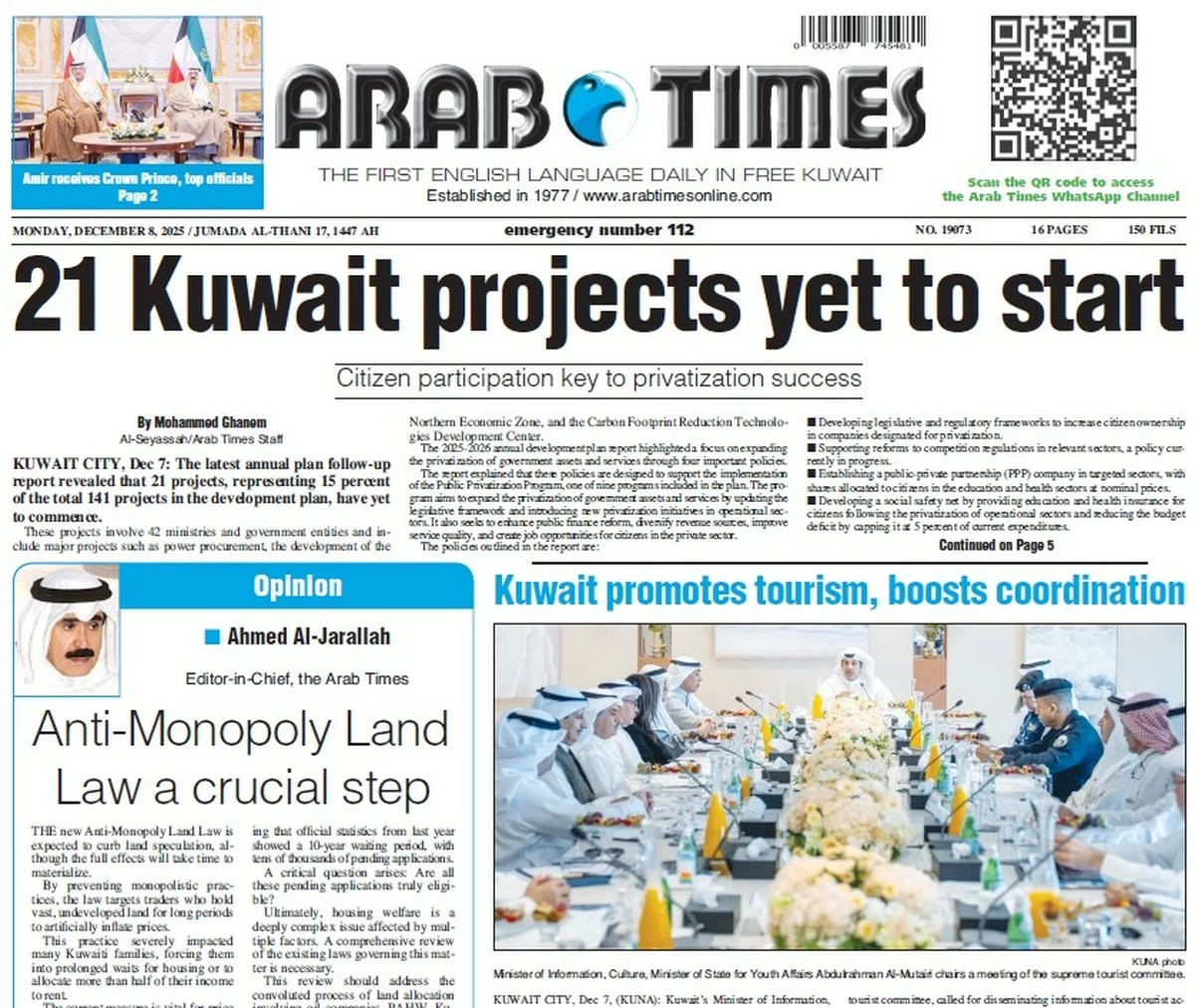10/11/2025
10/11/2025

KUWAIT CITY, Nov 10: The Gulf Cooperation Council (GCC) member states have made remarkable progress in power sector integration, with the GCC electricity interconnection project serving as a model of successful regional collaboration, said Undersecretary of the Ministry of Electricity, Water, and Renewable Energy, Dr. Adel Al-Zamel, on Monday.
Delivering a speech on behalf of the conference patron — Minister of Electricity, Water, and Renewable Energy, Minister of Finance, and Acting Minister of State for Economic Affairs and Investment, Dr. Subaih Al-Mukhaizeem — at the opening of the GCC Power 2025 Conference and Exhibition, Dr. Al-Zamel said the project has strengthened energy security, enabled mutual support during emergencies, and reduced operational costs across member states.
The event, hosted in Kuwait and organized by the Regional Committee for Power Systems (GCC CIGRE), brings together leading regional and international experts to discuss the latest advancements in the energy field.
Dr. Al-Zamel noted that ongoing efforts aim to expand cooperation to include renewable energy, green hydrogen, smart grids, and other advanced technologies. He emphasized that hosting the conference in Kuwait comes at a pivotal moment, as the energy sector undergoes a global transformation toward sustainability, energy diversification, and carbon neutrality — all aligned with Kuwait Vision 2035 and the GCC’s broader sustainable development goals.
He added that the ministry is implementing an ambitious plan to enhance energy efficiency and increase renewable energy to 15 percent of total national power generation by 2030, targeting a production of around 4,500 megawatts. The plan also seeks to reduce pollution levels and harmful emissions while attracting investment in the sustainable energy sector, amid declining costs for renewable technologies.
Dr. Al-Zamel highlighted ongoing efforts to develop smart grids and adopt modern technological solutions to boost operational efficiency, reduce emissions, and support Kuwait’s sustainable development objectives.
He acknowledged that the GCC’s electricity and water sector faces significant challenges, including rapid population growth, increasing demand for energy and water, and the need to balance sustainable development with environmental protection — alongside the technical hurdles of transitioning to clean energy and digitalization.
Dr. Al-Zamel described the GCC Power Conference and Exhibition as a key platform for sharing expertise, presenting innovative solutions, and discussing best practices in grid planning, operation, maintenance, renewable energy integration, and the use of artificial intelligence in network management.
He affirmed Kuwait’s belief that the future of Gulf energy relies on integration, cooperation, and continuous innovation, expressing hope that the conference will generate “constructive ideas and practical visions” to support sustainable development and open new avenues for investment in the region’s energy sector.
For her part, Engineer Athari Al-Mohammad, Chairperson of the GCC CIGRE and President of the Conference, said the event gathers an elite group of experts, researchers, and decision-makers from across the region at a time of major transformation in the energy industry.
She explained that the conference seeks to encourage dialogue on challenges facing Gulf power systems while fostering innovation in renewable energy and energy efficiency. Al-Mohammad noted that GCC CIGRE, a regional branch of the International Council on Large Electric Systems (CIGRE), supports scientific research and the exchange of technical expertise to advance energy sustainability across the Gulf.
Meanwhile, CIGRE International Secretary-General Philippe Adam stated that the organization aims to facilitate knowledge sharing and technical collaboration among energy experts worldwide.
Adam described the conference as a valuable opportunity for professionals — including operators, developers, innovators, and manufacturers — to exchange experiences in managing and developing electrical grids. He added that CIGRE’s global efforts go beyond events, extending to coordinated research and publication initiatives overseen by 16 study committees and more than 300 working groups, producing technical studies accessible to all members.


